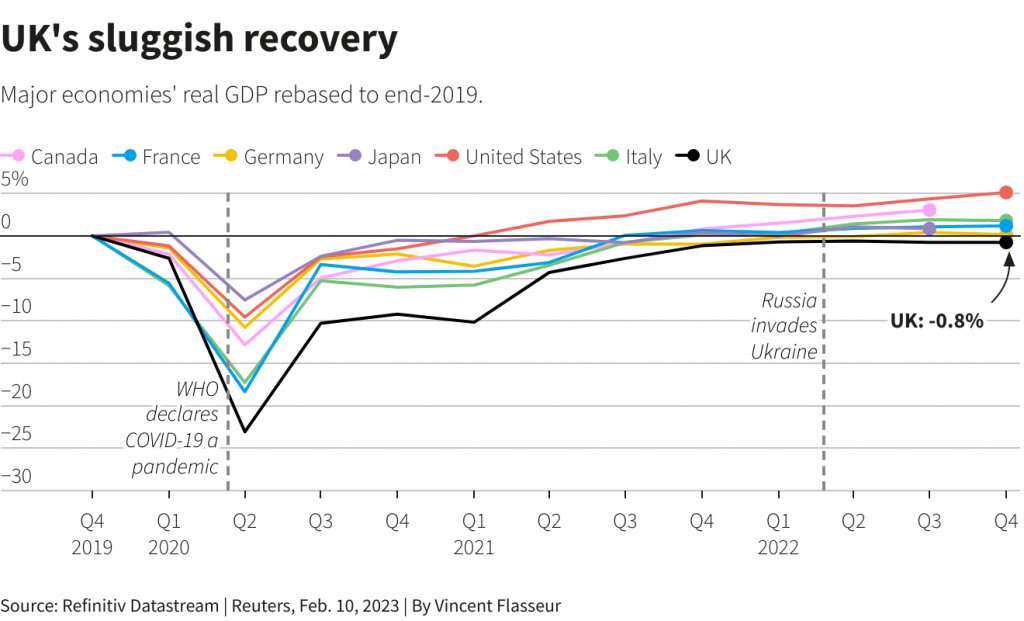The UK (United Kingdom) narrowly escaped entering a recession due to zero growth in the last three quarters of 2022. However, things may take a turn for the worse as the region continues its fight against high inflation rates.
According to the Office for National Statistics (ONS), the monthly GDP figures for December fell by 0.5%. The result exceeded the 0.3% prediction. There were strikes in the public sector, rail, and postal services at the time. In the three months leading up to the end of September, when many firms temporarily closed to observe Queen Elizabeth’s burial, output decreased by 0.2%. Another consecutive decline would have qualified as a recession in Europe.
Last Monday, the Bank of England forecasted that Britain will undergo a small but lengthy recession. Moreover, the bank said that UK’s recession would run for five quarters, beginning in the first quarter of this year. According to Deloitte economist Debapratim De,
“The UK avoided a recession last year but by the slimmest of margins. Going by recent data revisions, today’s figures could well be revised downwards in a few months, painting a very different picture.”


Finance minister Jeremy Hunt said the British economy was more resilient than anticipated. However, he added that the country is not “out of the woods.” Paul Nowak, general secretary of the British Trades Union Congress, urged Hunt to create provisions in the budget for more significant wage increases.
Is the UK heading to a recession?
Going by the data, it seems likely that the UK will enter a recession soon. However, the region is predicted to only go through a brief slump, far less severe than the ones that followed the 2008 financial crisis or those that occurred in the early 1990s.
Additionally, less than previously predicted unemployment growth is expected, and traders expect interest rates to climb just somewhat. According to a study released this week by the London-based National Institute of Economic and Social Research, despite the economy’s lackluster growth, Britain might completely escape a recession this year.
The broader issue is that the economy risks additional years of subpar growth due to low productivity and a reduced labor force following years of dismal performance. According to the Bank of England, the British economy won’t grow back to its pre-pandemic level before 2026.





